Home Buying Guide: Easy Steps for First‑Time Buyers
Ready to own a place of your own? The process can feel overwhelming, but breaking it into small steps makes it manageable. Start by figuring out how much you can afford, then move on to saving for a down payment, checking your credit score, and finally picking a mortgage that fits your life.
Step‑by‑Step Buying Process
First, sit down with a calculator and list all of your monthly income and expenses. Subtract the fixed costs – like bills, transport, and any debt payments – to see what you could realistically put toward a mortgage. Aim for a monthly housing payment (including mortgage, insurance, and taxes) that stays under 30% of your net income. This rule helps keep your budget balanced and prevents surprise shortfalls.
Next, check your credit score. Lenders use it to decide if you qualify and what interest rate you’ll get. If your score is below 620, consider spending a few months improving it: pay bills on time, reduce credit‑card balances, and avoid opening new accounts. A higher score can shave hundreds of pounds off your loan over its life.
Now, think about the down payment. Many first‑time buyers wonder if they need 20% of the purchase price. The truth is you can often put down as little as 5% with government‑backed schemes, especially if you’re buying under £250,000. However, a larger down payment lowers your loan amount and may get you a better interest rate.
With a budget and down payment figure in hand, start looking at mortgage options. Fixed‑rate loans keep your payment steady, while variable‑rate deals can start lower but may rise later. Talk to a few lenders or a mortgage broker to compare annual percentage rates (APRs) and any fees. Don’t forget to ask about first‑time buyer incentives; many banks offer reduced fees or better rates for new owners.
Tips to Save Money
While you’re house‑hunting, keep an eye on hidden costs. Closing fees, survey charges, and stamp duty can add up quickly. Use a budgeting app to track every expense and set aside a dedicated “home fund” each month. Even small contributions add up over time.
Consider government schemes like Help to Buy or shared ownership if you qualify. These programs let you buy a portion of a property and rent the rest, reducing the amount you need upfront. It’s a good way to step onto the property ladder without saving a huge deposit.
Finally, don’t rush the negotiation. When you find a property you like, ask the seller for a price reduction or ask them to cover some of the closing costs. A polite but firm approach often works better than a lowball offer that could turn the seller away.
Buying your first home is a big milestone, but with a clear plan, realistic budgeting, and the right mortgage, it’s entirely within reach. Use this guide as your roadmap, stay organized, and you’ll be holding the keys sooner than you think.
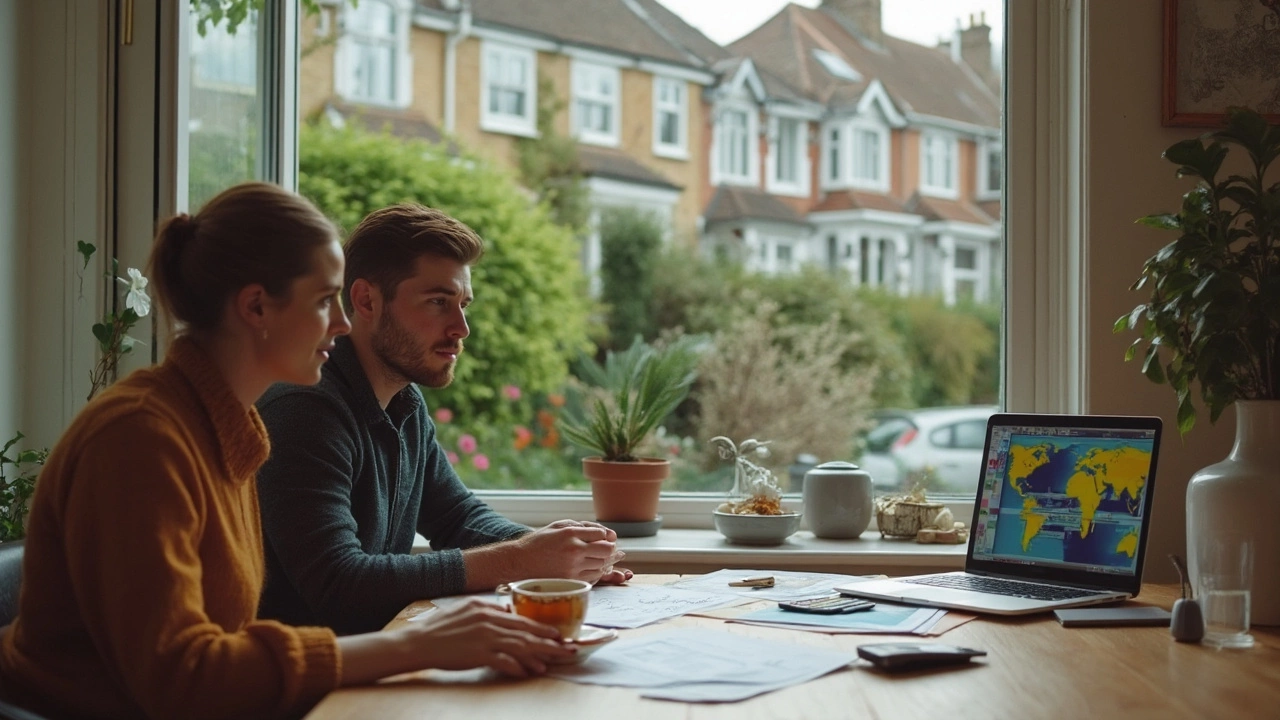
Minimum Down Payment on a House: What First-Time Buyers Need to Know
Trying to figure out what you’ll need for a down payment when buying your first house? This article breaks down the numbers, compares loan types, and clears up myths about minimum down payments. You'll get real tips on saving for your deposit, how your credit score matters, and what to expect in 2025. Straightforward facts, no jargon—just the info you need to kickstart your home buying journey.

Do You Have to Put 10% Down on a House?
Wondering if the 10% down payment rule is set in stone? This article breaks down what down payments really mean for first-time home buyers and explores all your options. We'll cover when 10% matters, how you can go lower—or higher—and share real tips to save money and lower your risk. Don't let old rules hold you back from getting the keys to your first home.
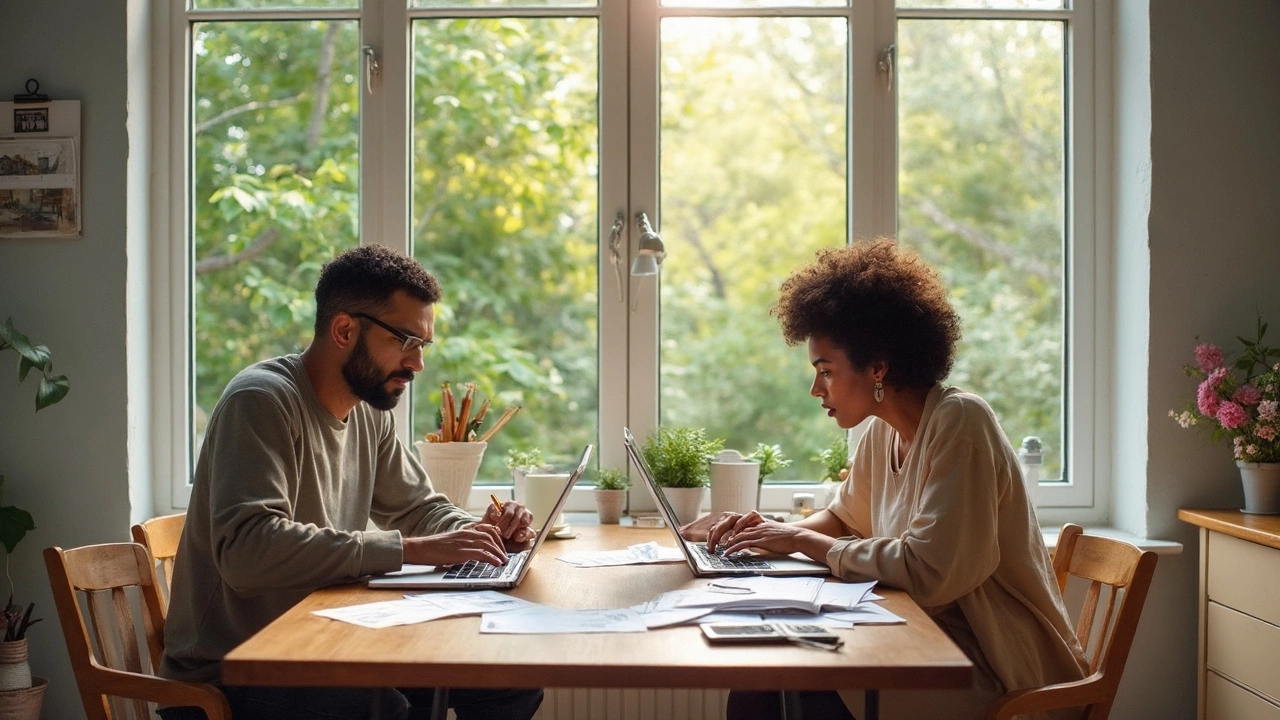
How Much House Can I Afford on a 100K Salary?
Buying a home on a $100,000 salary is more accessible than it seems when you break it down logically. This article offers crucial insights into your budget planning, helping first-time buyers determine just how much house they can afford comfortably. We'll explore key calculations, potential pitfalls, and practical tips to guide informed decisions. Understanding your financial limits is the first step toward landing your dream home.
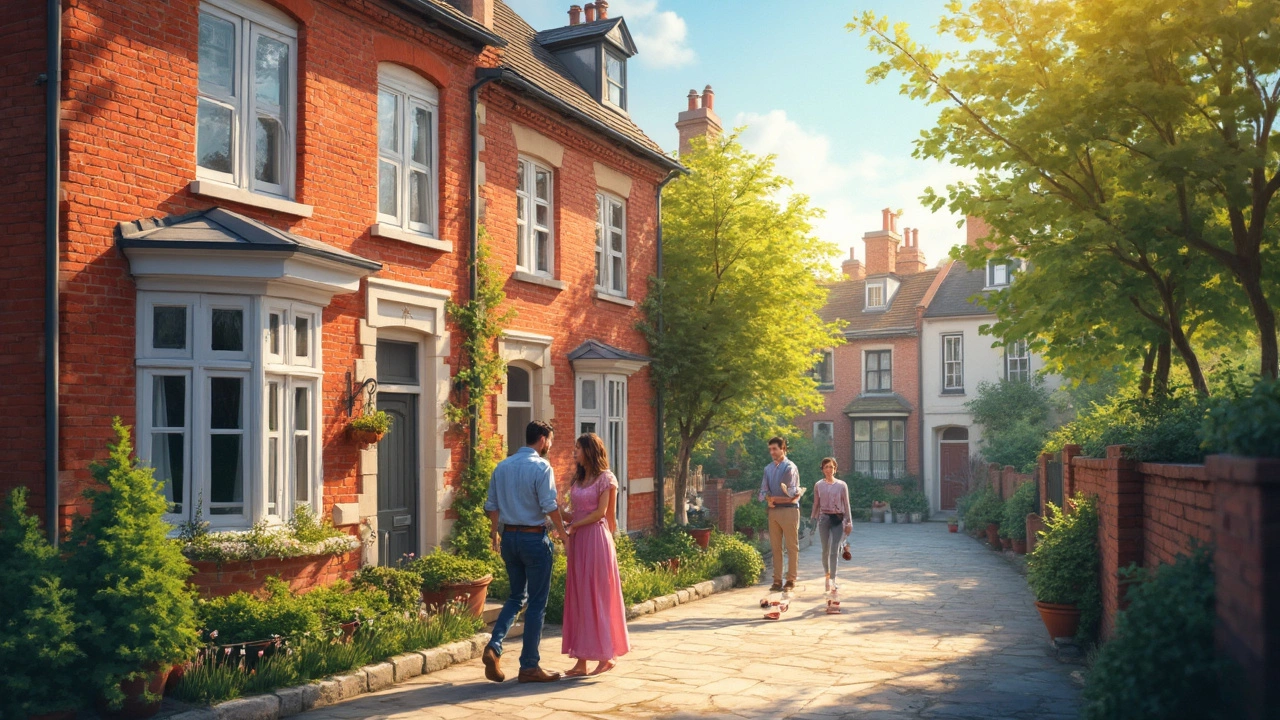
Understanding 10% Ownership in Shared Ownership Homes
Owning 10% of a shared ownership home means you have a stake that allows you to live in the property while paying a reduced rent on the remaining portion. This article explores how 10% ownership works, its benefits, potential pitfalls, and essential tips for prospective buyers. Learn why this option might be suitable for you and how it impacts your finances and long-term plans. Whether you're transitioning from renting or just starting on the property ladder, understanding the dynamics of this partial ownership is crucial.

How Much Do First-Time Home Buyers Usually Put Down?
Buying your first home is both thrilling and nerve-wracking. A significant part of this journey is figuring out what down payment you need. While 20% is a common benchmark, many first-time homebuyers put down less, often around 6 to 7%. Understanding these dynamics helps you better prepare for a successful purchase.

Navigating the Patterns of Shared Homeownership
Shared ownership homes present an alternative pathway to homeownership in today's complex housing market. This arrangement allows individuals to buy a percentage of a property, paying rent on the remaining share held by a housing association. Understanding the pattern of this share ownership is crucial as it offers affordability and a gradual increase in equity. This model is continuously evolving to accommodate diverse financial situations and housing demands.
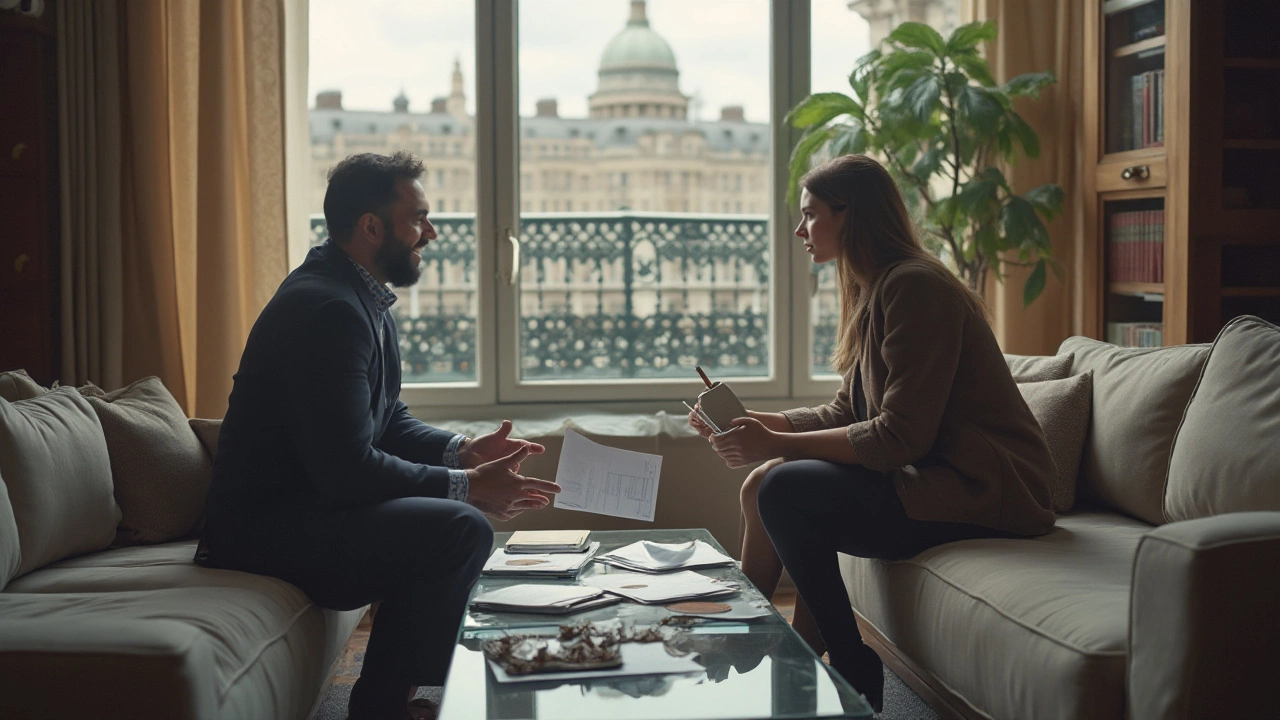
Credit Score Needed for a $2 Million Home Purchase
Buying a $2 million house is a significant financial decision, especially for first-time buyers. A key factor in securing a mortgage for such a property is having the right credit score. This article explores the importance of credit scores in luxury home purchases, offers insights into lender requirements, and provides tips on improving credit scores. We'll also discuss other essential considerations for first-time buyers looking to enter the luxury real estate market.
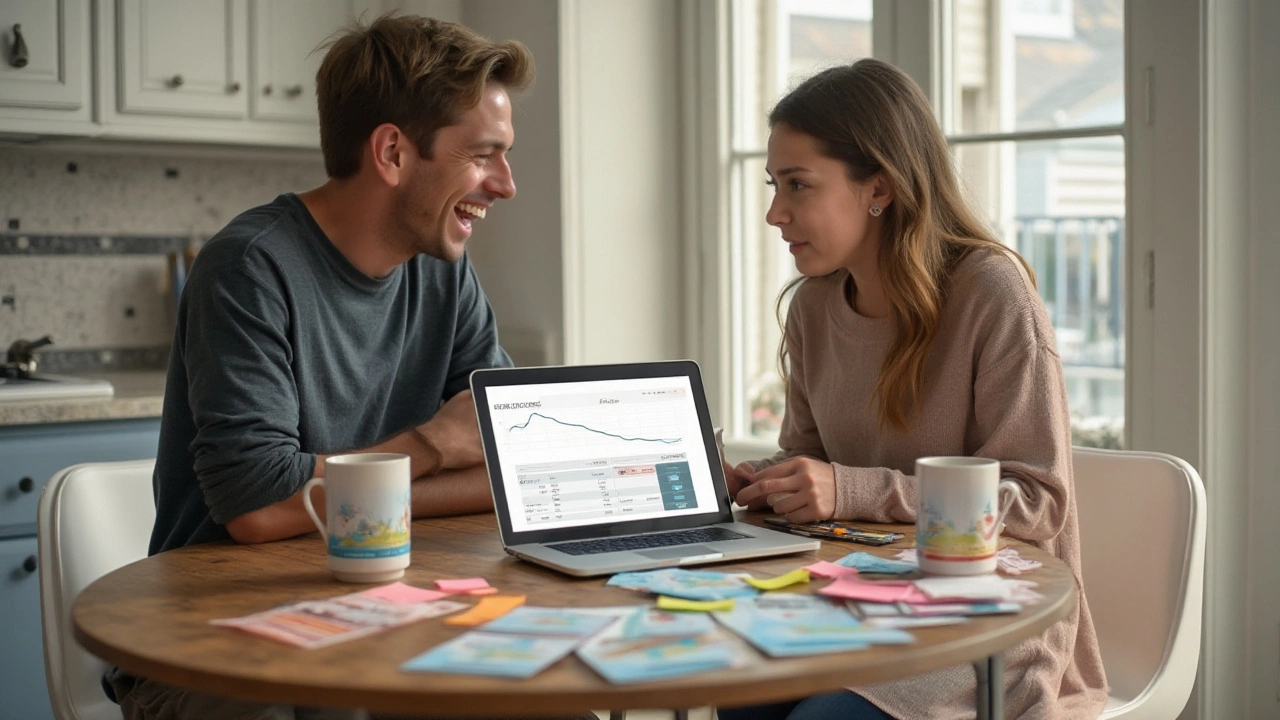
Virginia Home Buying Guide: Down Payment Tips for First-Time Buyers
Purchasing a home for the first time in Virginia can be a daunting process, especially when it comes to understanding down payment requirements. This article provides detailed guidance for first-time buyers on how much they may need to put down. Alongside practical advice, tips are shared to ease the financial burden with programs and strategies specifically available in Virginia. With these insights, prospective homeowners are better equipped to enter the real estate market with confidence.

Unveiling the Myth of the Perfect 900 Credit Score
Achieving a perfect credit score is a common goal for potential home buyers. This article explores the possibility of reaching a 900 credit score and examines its impact on home buying. Discover the factors that affect your credit score and practical tips for improving it. Learn how having a strong credit score can enhance your chances of securing a mortgage with favorable terms. Explore the reality behind the 900 credit score and what it means for first-time home buyers.

Understanding Shared Ownership and Its Benefits
Shared ownership provides an accessible path to homeownership by allowing individuals to purchase a portion of a property and pay rent on the remainder. This approach helps many people, including first-time buyers, to climb the property ladder without the need for a full mortgage. Shared ownership schemes offer various benefits, including lower deposit requirements and a gradual increase in ownership. Understanding the intricacies of shared ownership can help potential buyers make informed decisions in a competitive housing market.